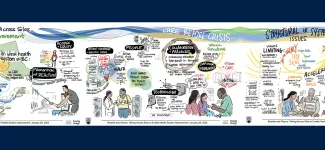UBC Health’s Role in Supporting Integrated Health Systems
UBC Health helps connect the university and the health sector, mobilizing education and research to effect heath systems transformation. We bring together policymakers, health authorities, health professionals, researchers, and community partners to explore how we can address urgent health priorities in BC. Our work helps align efforts across the university and health system and supports new, evidence-informed approaches to education, research, and care.
We are committed to supporting:
- Projects that provide proof of concepts for new ideas and inform innovations in health
- Collaboration between communities, the sector, and government on pressing health issues
- Learning experiences that prepare students to lead positive change in health
